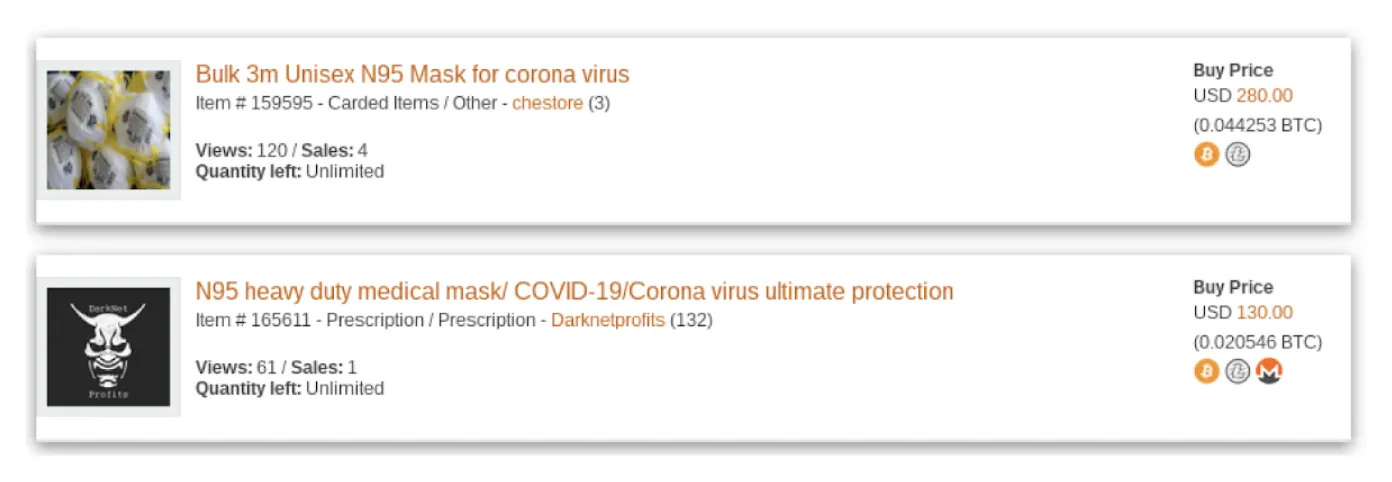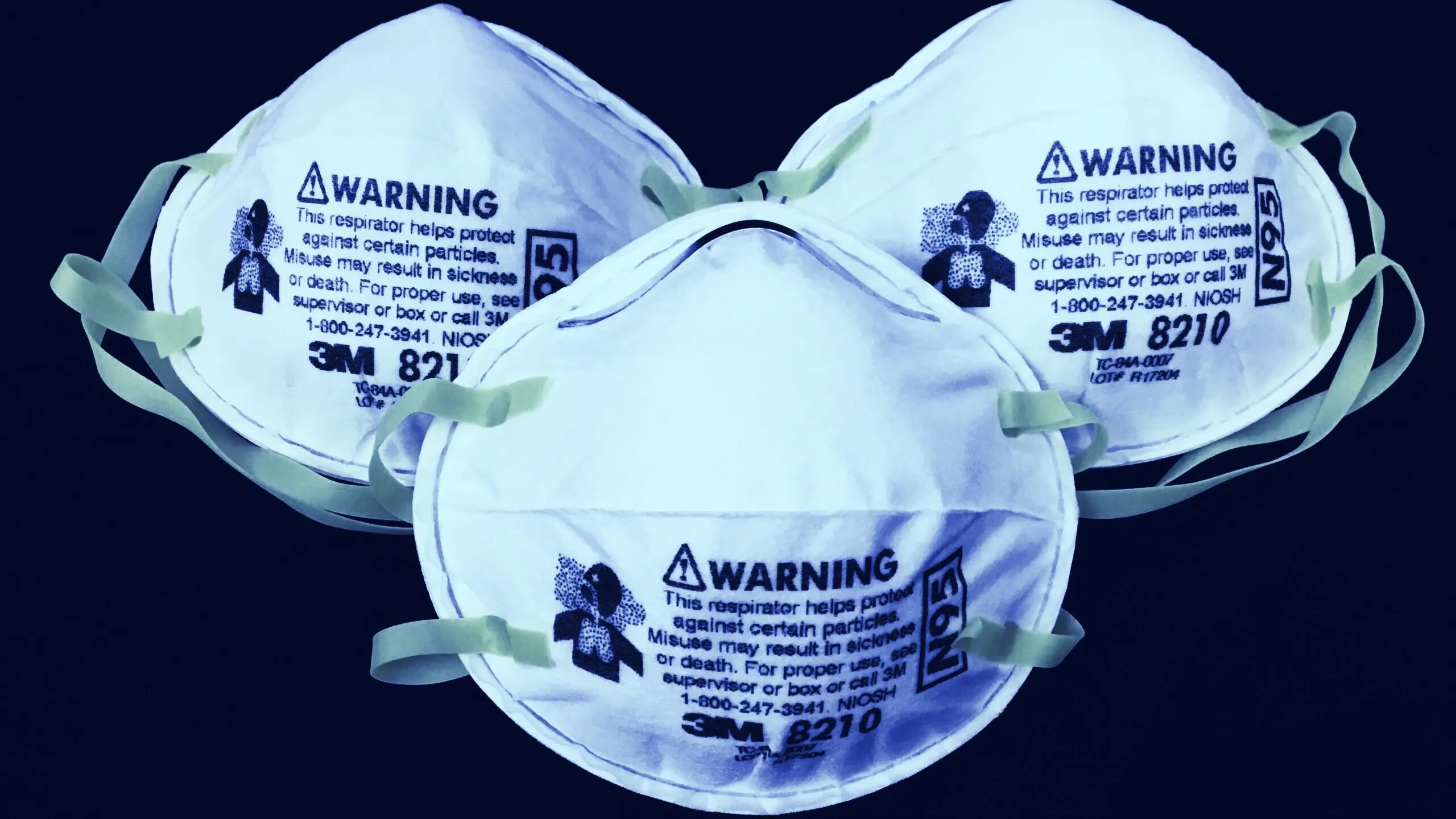In brief
- A study of dark web markets has revealed that hundreds of listings for restricted face masks have recently appeared.
- Researchers suggest that established vendors have moved to captialize on demand.
- Dark net vendors are also offering diagnostic tests, and chloroquine.
Dark web markets, which disguise server location and offer a way to buy almost anything anonymously with Bitcoin, are now awash with face masks and other coronavirus related goods, according to a new study by blockchain analytics company Elliptic.
Face masks such as the “N95’s” manufactured by US supplier 3M are in scant supply, and their sale for non-medical use has been restricted, as Governments have rushed to secure supplies to protect frontline medical staff during the coronavirus pandemic. But Elliptic reported on Monday that “hundreds of listings have recently appeared on darknet markets for N95 masks.”

Because dark web markets lie beyond the reach of regular search engines and payment is made with cryptocurrencies, they are popular with criminals, as buyers and sellers are largely untraceable.
Listings offer medical-grade masks in bulk at around $1.75 per mask—“a surprisingly low mark-up on retail prices,” notes Elliptic. Legitimate marketplaces such as Amazon list the same masks for sale for upwards of $10 each.
As well as illegal drugs, stolen credit cards, and now face masks, dark net vendors are also offering diagnostic tests, and the much-hyped, anti-malaria drug chloroquine researchers said.
While it’s been touted as a coronavirus cure by US President Donald Trump, chloroquine’s effectiveness as a cure or prophylactic has yet to be medically approved. Despite this, packs of 150 pills are available on the dark web for $500. On prescription, a similar quantity of the drug is around $25.
Elliptic reported that dark web sites indexing sellers from the United States to Europe and Russia have appeared as demand for protective equipment and medicines has soared.
"These vendors are opportunistic, jumping on any opportunity to supply goods that are difficult to obtain elsewhere," the researchers said.
They point out that, while it is not possible to confirm whether the products are genuine, around two-thirds of the sellers could be considered “authentic," given their user ratings and large numbers of previous sales.
Over a third of those selling coronavirus-related items are established vendors who usually focus on selling drugs, while 45% sell fraud-related items such as hacking services or counterfeit bank notes, said the research.
But a new online shop dedicated to the sale of masks has also launched. The vendor claims to be a wholesaler for hospitals, declaring: “Everybody need [sic] a chance to get a Mask for protection—Not only medical employees!”
If only the CDC could make up its mind on whether we should wear them.

